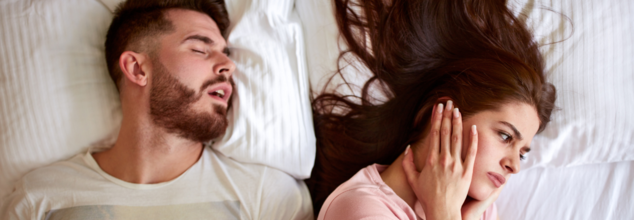
(Credit-Canva)
Should You Be Drinking Water Right After Eating?
Water plays an essential role in our day-to-day life. Even if you feel like you do not need it, one should drink 8-10 cups of water throughout the day. It aids us in things like digestion, avoiding fatigue and other issues. However, are there times when you should avoid drinking water? Many people avoid drinking too much water before bed so that they do not wake up at night, while others do the same before travelling. Though there are different opinions on whether you should drink water or not after a meal.
Why You Should Not Drink Too Much Water After Eating?
People claim that drinking large amounts of water immediately after eating can dilute these vital digestive juices, which in turn hinders the proper digestion of foods. There is also a belief that drinking too much water right after eating can weaken your stomach's digestive juices, making it harder to absorb nutrients, which can cause discomfort and health problems. Since digestion is how we get the nutrients our bodies need, it's important to understand how water affects it and why timing your drinks around meals matters.
According to the Clinical Nuclear Medicine, drinking too much water right after eating can interfere with digestion. It dilutes the stomach's digestive juices and affects how bile is released, potentially slowing down the breakdown of food and absorption of nutrients. Basically, the body's natural digestive process works best when it's not overwhelmed with too much liquid at once.
Does The Amount Of Water You Drink Matters?
On the contrary, Mayo Clinic suggests that water doesn't weaken your digestive juices. Instead, it helps break down the food you eat, so your body can absorb the nutrients. Water is also a key part of saliva, which helps you chew and swallow. Plus, it's a component of stomach acid, which is essential for digesting food. Drinking enough water can also soften your stool, helping to prevent constipation and keep things moving smoothly.
Most people benefit from drinking water with meals, but there are exceptions. If you have heart, kidney, or liver disease, you might need to limit how much water you drink. These conditions can affect how your body handles fluids, so it's important to talk to your doctor or healthcare team about the right amount of water for you.
When Should You Drink Water After Eating
Experts say that while a little water is ok, drinking too much after eating is not advisable. It's best to wait 30-60 minutes before having a large drink. While some water after a meal can help you feel full and stay hydrated, too much can cause bloating or discomfort. Remember, everyone's body is different, and factors like age, health, and medications can affect how you react to water after meals, so moderation is key. You can always incorporate different ways to improve your digestion, you should also get checked by a healthcare professional for the same to be safe. Here are some ways you can improve your digestion:
- Give your body time to digest your food.
- Fiber helps keep things moving through your digestive system, but drink plenty of water if you increase your fiber intake.
- Physical activity helps your gut work properly.
- Stress can affect your digestion, so try to relax, especially during meals.
- Avoid overeating, which can lead to discomfort.
- Regular meal times can help your digestive system work more efficiently.

(Credit-Canva)
'Weak With Laughter'- Its Not Just A Phrase, It Actually Happens!
Have you ever experienced a momentary loss in strength when you laugh? Many people also express their lack of motor control for a few moments after laughing or experiencing extreme emotions. Scientists now have some answers as to why this happens. It turns out that laughter can trigger a reflex in your body that weakens your muscles, almost to the point of collapse. This isn't just a feeling; it's something that can be measured using electrical signals to see how your muscles react.
Laughter Can Make You Weak!
Researchers in the Netherlands, whose findings were published in the medical journal The Lancet, 1999 made this discovery while studying a condition called cataplexy. Cataplexy causes people to suddenly lose muscle control and collapse during strong emotions, especially laughter. They were comparing people with cataplexy to a control group without the condition. While studying the muscle reactions of the control group during different emotions, they unexpectedly found that laughter caused a significant weakening of muscles.
Testing the Laughter Effect
The researchers used electrodes to measure the H-reflex, which is a way to see how muscles contract. They showed the control group, which included fellow researchers and medical students, various slides to evoke different emotions. Instead of being nervous, the participants were relaxed and joking around. That's when they noticed something interesting, when the participants laughed, their H-reflex almost disappeared.
To confirm their findings, they conducted another experiment, this time intentionally trying to make people laugh. Sebastiaan Overeem, a medical student known for his humor, was tasked with getting the new group of subjects to laugh. He used jokes, including ones about Belgians, which were particularly effective. Every time a subject laughed, their H-reflex significantly weakened, proving that laughter does indeed cause a measurable muscle weakness.
How Does Cataplexy Affect Us?
The Cleveland Clinic explains that it happens while you're awake, and it's a common sign of a sleep problem called narcolepsy. Narcolepsy makes you feel so sleepy during the day that you can't stop yourself from falling asleep, even when you don't want to. Sometimes, cataplexy can also be caused by very rare problems you get from your parents.
When you have a cataplexy attack, your muscles can get a little weak or very weak. Sometimes, only a few muscles get weak, like the ones in your face, making your jaw drop or your head nod. However, sometimes, all your muscles get weak, and you might fall down. The important thing is, you stay awake and know what's happening during the attack. This is different from fainting or having a seizure, where you lose consciousness.
Cataplexy attacks usually only last for a few seconds or minutes, and then your muscles go back to normal on their own. How often they happen is different for everyone. Some people have many attacks every day, while others only have a few attacks each year.

(Credit-Canva)
Noticing Puffy Eyes - It Could Be A Sign Of THIS Infection
Even when there are subtle changes in our body, we are able to notice quickly. Symptoms like puffy eyes are very apparent, many people experience them after crying or having an allergic reaction. However, could they be a sign of something else?
One unexpected infection that can cause puffy eyes is sinus infection. The Centers of Disease Control and Prevention (CDC) explains that sinus infection is when one's nasal cavity gets inflamed, which causes fluid to build up. Symptoms of an infected sinus are runny nose, facial pain or pressure. Mayo Clinic explains that another sign of it can be puffy eyes.
These sinuses are right below your eyes, the swelling can also make your eyes look puffy, which adds to the overall feeling of being unwell. It's important to recognize these symptoms to start treating the infection and feel better.
Managing Eye Puffiness from Sinus Infections
The puffiness around your eyes when you have a sinus infection is caused by the same swelling and pressure that affects your nose and head. To help reduce this puffiness and feel more comfortable, there are a few simple things you can try. First, drink plenty of water. Staying hydrated helps thin out the mucus in your sinuses, making it easier to drain.
You can also gently massage the area around your eyes to help move the fluid and reduce swelling. Another helpful trick is to apply something warm to your eyes, like warm washcloths or used tea bags. The warmth helps to increase blood flow and encourage the fluid to drain, which can significantly reduce the puffiness. Doing these things regularly can help you feel better and look less tired while your body fights off the infection.
Combating Congestion Associated with Sinus Infections
One of the most annoying things about a sinus infection is feeling all stuffed up. The same swelling that makes your eyes puffy also makes your nose sore and inflamed. This congestion can make it really hard to breathe through your nose, which can be very uncomfortable. You can also get congested from allergies, a cold, or the flu, but with a sinus infection, the congestion is often worse and lasts longer. The mucus can build up in your nose, making it feel like it's completely blocked. This makes it hard to sleep, eat, and even talk. Dealing with this congestion is a key part of getting better from a sinus infection.
Remedies for Sinus Congestion
When you're really congested from a sinus infection, you might reach for over-the-counter nasal sprays or decongestants. These can help you breathe easier for a short time, but it's important not to use them too much. If you use them too often, your nose can get used to them, and they won't work as well. It's better to try home remedies first.
Drinking plenty of water and using warm compresses on your face can help loosen the mucus. You can also try using a humidifier in your room. Dry air can make congestion worse, while moist air can help you feel better faster. A humidifier adds moisture to the air, which helps thin the mucus and makes it easier to breathe. These simple things can make a big difference in how you feel and help you recover faster.

(Credit-Canva)
Common Signs That Can Be A Concerning Link To Suffering Health
Many times, the sign of bad health can be difficult to spot. We all have a different perception about what ‘bad health’ looks or feels like. However, there are also subtle signs that your body gives when there is something amiss. These symptoms can be as simple as yawning frequently or feeling bloated, which are things that can happen due to regular lifestyle habits like eating or not sleeping enough. These subtle signs can pinpoint what you may be lacking and many times it is the lack of certain nutrients.
Subtle Signs Of Lacking Health
Our hectic lifestyles can often lead us to dismiss health concerns and label them as inconsequential. If one notices these symptoms popping up a lot, make sure you bring it up with a healthcare professional.
Persistent Snoring
Loud night noises aren't always just annoying; they can mean your nose shape is off or hint at bigger sleep problems. The National Heart, Lung, and Blood Institute explains that snoring can sometimes hide serious health issues, like obstructive sleep apnea which basically starts and stops breathing.
Easy Bruising
Harvard Health Publishing explains that if you get bruises from tiny bumps, your body might lack important stuff like vitamins C and K. Eating more fruits and veggies can help. However, if you're still getting lots of bruises, it could mean something else, like a liver problem. It's best to get it checked out by a doctor.
Itchy Skin
Dry skin is a common reason for itching, but it can also be a sign of allergies or other health problems. Regular lotion helps, but if the itching doesn't stop, see a dermatologist. They can figure out if it's just dry skin or something more serious, like a thyroid issue or even something rare.
Chronically Cold Hands and Feet
The Cleveland Clinic explains always having cold hands or feet can mean your blood isn't flowing well, or you need more iron or vitamin B12. If your feet change color when cold, that's a red flag. Eating foods with iron and B12 can help, but see a doctor to rule out any blood flow issues.
Frequent Bloating
Feeling puffy all the time is often because you're not drinking enough water or your body's salts are off. Drinking more water and coconut or cucumber water can help. If it keeps happening, your body could be telling you something is off balance, so pay attention.
Eye Twitching
Eyes that twitch a lot can be from not sleeping enough, but it can also be a rare sign of a nerve problem Multiple sclerosis, according to Mayo Clinic. They can figure out if it's just tiredness or something else. Don't try to guess what it is online, get a professionals opinion.
Persistent Bad Breath
Bad breath is often from not brushing well or not drinking enough water. Brushing, flossing, and drinking water help. Eating yogurt or kimchi can also help. If your breath is still bad, it could be a mouth infection, so see a doctor. They can give you medicine if needed.
Excessive Sweating
Sweating a lot, even when it's not hot, can mean your thyroid is overactive or hint at other problems. If you also feel sick, dizzy, or have a headache, see a doctor right away. It's better to be safe, as sweating can be a sign of something that needs immediate medical help.
Constant Sleepiness
Always feeling tired can be from a bad diet or a sleep problem where you stop breathing at night. Eating healthy foods like fruits and tea can help. If you're still tired, a sleep doctor can find out why you're not resting well and help you get better sleep.
© 2024 Bennett, Coleman & Company Limited

